|
I'm in a monogamous relationship with my chunky frames.
I like being bespectacled. My frames are a part of my identity: a love song to my unrepentant nerdiness, a signifier of my liberal politics and my commitment to fa'shione. I also have a big fat head, which makes the process of finding any glasses - let alone glasses I lurve - a bit of a trial. (I can't even start to tell you the hat woes I experience on a near constant basis, ghurl!) I feel like eyewear fatphobia is the secret step-sister of fashion fatphobia generally. I feel like everywhere I go people relate to my big head woes, but where is the movement to end the spectacle injustice? As much as my current frames and I have been through, I'm on the prowl for a new pair. Its not so much a wandering eye as it is necessity that has driven me to diversify. I can tell the prescription has changed and I'm not sure how many more little speckles of plastic encoating they can stand to lose before things get really heinous. I was excited to hear that the Vintage Fashion Expo was heading into town! I'll be looking for my soul frames this Sunday with two of my fav fashionistas. Wish me luck and check it out if you get a chance! Also, good news: if you're in LA the Expo is heading to you too. xo, Virgie A few weeks ago I was talking to my cousin about dating. I told him that when it comes to romance, I believe in the "practice makes perfect" principle. I date to practice dating, to practice figuring out what I want, asking for what I want, to learn what it feels like when I get it, to know what it feels like when I respect someone and when I don't. I'm a pragmatist in a lot of senses romantically, and I truly believe that dating - like sex - is a skill. And that like any skill, it gets better with practice.
This is not a particularly popular opinion, it turns out. My cousin virulently disagreed, saying that I'm over-thinking things and that I should allow romance to come naturally - magically, even. I pushed his theory, asking him how many dates he'd gotten through this magic. He thought about it: "one." One!? I countered with my dozens of methodically acquired 2013 dates, most of which I enjoyed. Interestingly, when we started talking about career, retirement and investments, he argued for a proactive, hands-on approach. I argued for surrender, patience... magic. I realized that the attitudes and beliefs I carry into my career are at times significantly different than those I hold toward romance, and this fact puts me in strange opposition to cultural norms. I mean, not that I'm not already at odds with cultural norms, ghurl. Furthermore, what I sensed from my cousin's response was that I had tread onto hallowed ground: romance is sacred; the idea that I would claim power or attempt to practice control seemed almost offensive or anti-humanitarian. So, as I do, I decided to think about my attitudes and beliefs and see if I could figure them out. Let's start with romance. It was only until really recently that I could unflinchingly say that I want to get married - in fact, I'm going to get married - blissfully married. But I didn't want marriage in my 20s and I have a feeling I won't be quite there until my late 30s. Because culturally marriage is so tied to baby-having (which I'm pretty sure I don't want), my desires didn't jive with the typical narrative/trajectory and it confused me - pushing me to pursue relationships headed in that direction and compelling me to leave them (read: sabotage them) when marriage arose as a possibility. Because my desires were at odds with the biological clock model, I felt shame and confusion about what I wanted. Because I thought my desires were wrong I tried to fight them, but when it came time to take the next step I would begin to panic. Rather than fight the "cold feet" I heeded what my body was telling me. Panic is the body's way of screaming "NO!" Perhaps because there is a dearth of boss lady/businesswoman narratives (especially for fat brown girls!), I didn't feel the same pressure when it came to my career. I mean, yes, I worried about what I was going to be when I grew up and I had moments of insecurity and complete financial instability (and I'm quite sure there are going to be some more of those). But because there wasn't a strong narrative in my head about the how and when of my career life, I felt freer to pursue my convictions and passions. I had those "cold feet" moments in my career life too. Like the time I got into this New York teaching program - full ride for an MA, life in one of my favorite cities, meaningful work with youth. I had already paid for the qualifying exams, already said yes to the program and even the principal who had recruited me to work at his school. Every time I sat down to book the plane ticket, though, I would clam up. I kept avoiding it until the very last conceivable day, and when I sat down in front of my computer to finally do it I began to cry uncontrollably. Rather than fight it, I decided to give into it. Even though I didn't have any other career prospects at the time, even though I was unhappily living with my parents, even though I knew it would be considered irresponsible, I wrote everyone emails expressing my regret and let it go. Not long after that a friend invited me to share her apartment in San Francisco for what was $350/month at the time and I got a job in radio. I want to talk about "cold feet" for a second because this belittling misnomer really bothers me. "Cold feet" is your body saying no. It's your inner wisdom stepping in and telling you something I believe is worth heeding. Its prevalence in romance narratives is undeniable, and the culturally sanctioned impetus to "work past it" or normalize it is terrifying to me. If your body is saying no, there's a reason. What I've learned is that your body can't tell you why the answer is no, but it doesn't make the no any less powerful. You've got an oracle living inside you, ghurl! In short, my belief system is part logic and part magic. As taboo as I know this is, I feel entitled to great dates and great sex and a career that makes me feel whole. I approach those goals differently, and that works for me for now. I believe that my body knows what it needs and that I am the best judge of what I want. I am not always right, but I know that the only way to it is through it. So, this week say no to something you don't want and go after something you do. It'll be fun :) While enjoying Labor Day festivities at one of San Francisco's premier socialite's home, I was lucky enough to find myself seated next to one of SF's most gifted maker of superb hair pieces.
She said she had a juicy story to tell me - a break-up story no less! - and I've decided that you HAD to hear this story too (yes, I got her permission to tell you - don't worry, ghurl!). I had briefly met this boy she was dating - we'll call him "The Thing" to retain respectful anonymity, but also because this is the nom de guerre by which she refers to him, and you know I like to respect the story teller. I can now say that he struck me as a bit meh - ok, maybe a little worse than that - especially considering the charm, loveliness and talents of his date. Well, it turns out that they were in the midst of moving their relationship to the next level. She was going to let him move in and she was going to begin supporting him as he embarked on a new artist lifestyle. (Aside: Yes, at this point I audibly gasped - ghurl, you know I try not to judge because, ghurl, whatever works works, but I say rule #1 DO NOT support a man, ghurl. Not for a day, not for a week and not as a lifestyle choice. I know we're in 3.5th wave feminism, but I don't need to tell you that patriarchy is alive and kicking and we all know how radicalism somehow manages to end up serving oppressive people/aesthetics all the time, but I digress). She nods knowingly in response to my gasp. Good, we're on the same page. Then she says one afternoon they were sitting around and she noticed him staring at her belly. She had recently gained about 10 pounds, and she decided to bring it up. "I noticed you looking at my belly and I was wondering what you were thinking." He was apparently quite verklempt, but managed to convey that he was thinking that she had gotten bigger. GASP. She's (rightfully) hurt, but decides to process on it. People are allowed to have feelings. (Aside: Fatphobia is not a "feeling" but I must note her incredible magnanimity... anywaaaay). After a day she was ready to talk it out, but then had a lingering question. So she posed it: "Is it just this 10 pounds or have you always had a problem with my weight?" Again very verklempt he replied: "Always." Apparently it had been a problem for him and he had always just sort of hoped she'd lose weight on her own (after he bought her a pound of chocolate all on his own just 2 days prior). It was then that she got up, exposed her belly, and yelled: "LOOK AT THIS! LOOK AT ALL OF THIS. THIS IS ME, AND I AM BEAUTIFUL." She slowly turned a full circle. "These are my big, beautiful hips and my wide, flat ass, and my jiggly thighs. This is who I am, and I AM BEAUTIFUL! THIS WAS HERE BEFORE YOU AND IT WILL BE HERE LONG AFTER YOU'RE GONE!!!" And with that, the story of The Thing came to a ceremonious close. You've got just 5 more days to hop on the Fall Into Body-Love train! Registration closes this Friday, September 13. Read on for a little sneak-peak of a post from Golda Poretsky, your instructor for this 90-day online course!
You Have My Permission To Love And Accept Your Body, Just As It Is, Right This Minute by Golda Poretsky Of course, you know that you don’t actually need my permission to love your body, right? Who the frick am I to give you permission to love your body?! That’s your choice, isn’t it? No one has the right to give you permission or to take away permission. So if I can’t give you permission, and no one else can give you permission, why then are you (possibly) still struggling to give yourself permission? Perhaps I can think of a few reasons. But before I do, I want to make it clear that loving and accepting your body is actually really important, healing, and healthy. You’re a spiritual being having a physical experience. The way that you experience the world is through your body. When you feel love and approval toward your body, then you can truly experience your life and the world around you. The stress of worrying about whether your hair is right and whether your outfit disguises your belly rolls and whether you should’ve had that second cookie at that meeting at work all melts away. You can live your life with more peace. You can hear your inner truth. You can enjoy being in a body that is uniquely yours. And it truly doesn’t have the negative effects you think it will have. You can do and experience all this and more, but first, you have to give yourself permission to love and accept your body. In order to get that permission, you’ll probably need to work through at least one of these five objections, so let’s explore them a bit. Reason #1: Everyone Around Me Hates His/Her Body, So People Won’t Like Me if I Like My Body Most of us have a fear of being different – too different – than those around us. For thousands of years, being an outcast could literally mean death, and so that desire to fit in with our social group is quite intense. At the same time, we have to remember to think for ourselves, and make choices that are for our highest good. If you’re drawn to body acceptance, there’s a reason for it. And if you accept your body more and more, you may get some flack for it, and you may find that some people in your life don’t understand or respect it. You may also, however, find that some of your friends want to learn more about it and go with you on that journey. You might find that you make new friends who are into body acceptance and are happy to encourage you. And you may even become a voice for change for those around you. Reason #2: Everyone Around Me Hates His/Her Body, So Why Do I Have the Right to Be Different One of my favorite quotes of all time is this saying by Hillel the Elder: “If I am not for me, who will be for me?” You have the right to be, do, and have anything that you want. If you don’t stand for that right, who will? You must be for yourself. Acknowledge for yourself that you deserve to love your body. Reason #3: I’ve Heard Negative Messages About My Body for Most of My Life, so They Must Be the Truth. Negative messaging about our bodies is so insidious. If you’re one of the lucky few who has managed to avoid hearing negative messaging at home and in school, then you’ve gotten it from the advertising you’ve been exposed to since birth. It’s one of those flaws of human thinking patterns that we tend to believe what we hear if we hear it enough. But just because you’ve heard something a lot does not mean it’s true. And even if 99% of people believe it to be true, it doesn’t mean it is. There is no objective truth that some bodies are beautiful and some are ugly. There is no objective truth that some bodies are good and some are bad. Just knowing that your body is not horrible doesn’t mean that your inner critic is going to stop telling you that, but disentangling yourself from this belief is an important first step in accepting your body. Want help with being more comfortable in your body - no matter what size or shape it is? Click here to learn more about Everyday Feminism's 60-day online course Fall Into Body Love. I've often been asked about my opinions or politics surrounding fat men. I have long hesitated to speak on this issue - despite its significance - because (1) my background and expertise lie in the study and advocacy of women and (2) I hadn't dedicated enough time to figuring out my ideas on the way that fatphobia affects men, especially considering the ways that I feel that fatphobia is so heavily mediated by gender (i.e., fatphobia in so many ways is about hating and policing women and our bodies). What I've realized recently is that in some ways the fatphobia that fat men experience is as a result of sexism. In researching this idea, I found that fat men are often perceived as feminine. I found that fat men are often perceived as possessing "looser morals" or less discipline - traits historically ascribed to women/femininity. I also found many themes that pointed to fatphobia toward men, at its roots, being about anxiety that men were becoming woman-like. So, I believe that it is sexism and the deep cultural hatred of the feminine - not the hatred of men who are fat, per se - that leads to some (possibly many) of the instances of fatphobia that men experience. In reviewing images and articles related to fat men there were three themes that struck me: 1. Chemical Feminization Even Dr. Oz is worried that men's belly fat "increases the conversion of testosterone into estrogen." In a Salon article dated September 8, 2010, entitled "Sex Researchers: 'Size' Does Matter" (Subtitle: "Study shows that fatter men last longer in bed. Should Americans rejoice?"), Judy Mandelbaum writes "Men with excess fat showed higher levels of the female estradiol sex hormone. This substance apparently disrupted their bodies’ natural 'male' neurotransmitter chemicals and slowed their progression towards orgasm. Ironically, the less masculine their bodies appeared, the better lovers they proved to be." 2. Fat Castration In searching images and articles on fat men, a popular meme related to fat men's bodies is what I started calling the "fat castration" meme: literally the idea that fat men cannot find their penis (this level of condescension is typically reserved only for women, by the way) or haven't seen their penis in years or are otherwise metaphorically castrated by their fat: 3. "Moob" Development
Another source of anxiety expressed toward fat men's bodies is the development of breasts - otherwise known as the shame-inducing neologism "moobs." This phenomenon is described as "disgusting" (UrbanDictionary), and treatment suggestions - surgical and otherwise - abound online. In an article for Men's Health on "banishing" your man boobs, the author writes: "You probably love a great set of breasts—as long as you’re not the one sporting them." This seems to draw parallels between compulsory heterosexuality, masculinity and body size - subtly policing the boundaries of sexuality by pointing out that only women should have breasts and as a man you should be attracted to them and if you have "moobs" then you are confusing heteronormativity and blurring the culturally sanctioned bifurcation between men and women. It is clear that there are many, many reasons that men experience fatphobia, most of which I did not go into here. However, I feel that sexism is a major factor certainly in the ways that fat men are rhetoricized online. The anxiety that fat men are becoming women or exhibiting traits historically ascribed to women, I believe, is at the heart of at least some of the fatphobia that fat men experience. For this reason I believe that the treatment of fat men is a feminist issue, deserving consideration and inquiry that do not seek to deny male privilege - which fat men do possess - but to interrogate the ways in which fat men's bodies are constructed culturally and the ways that this construction affects the treatment of women and the policing of gender non-conformity. It would LITERALLY mean the world to me to see you (and your friends) at this workshop! Body positivity, innuendo, inappropriate story sharing and jiggle guaranteed! ♥
Burlesque & Exhibitionism Basics for the Shy & Awkward Tuesday, September 10th 6:30pm – 8:30pm $20 in advance, $25 at the door http://www.brownpapertickets.com/event/450541 Burlesque isn't just for Miss and Mister Natural-Born Exhibitionist -- and exhibitionism can be an acquired skill! This class is for the sexy bookworms and the flirty Frasier enthusiasts who yearn to bust a burlesque move, dress for excess, and welcome a sexier and more confident self into being. Learn the difference between a shimmy and a bump and the power of eye contact, choose your burlesque alter ego, and practice your new moves. Get all the secrets to pasty making and learn where to acquire the hottest wardrobe, too! You'll go home with the skills to be the star of your own personal sexy show--and the confidence to strut your stuff on the street at the Folsom Street Fair! Virgie Tovar doubles as Dulce de Lecherous, the editor of Hot & Heavy: Fierce Fat Girls on Life, Love, & Fashion and your Burlesque Basics instructor. This class is open to men and women, butches, bois, queens -- and everybody else! -- of all sizes and (18+) ages. Tickets here! http://www.brownpapertickets.com/event/450541 |
Virgie Tovar
Virgie Tovar, MA is one of the nation's leading experts and lecturers on fat discrimination and body image. She is the founder of Babecamp (a 4 week online course focused on helping people break up with diet culture) and the editor of Hot & Heavy: Fierce Fat Girls on Life, Love and Fashion (Seal Press, 2012). She writes about the intersections of size, identity, sexuality and politics. See more updates on Facebook. Archives
April 2021
Categories
All
|
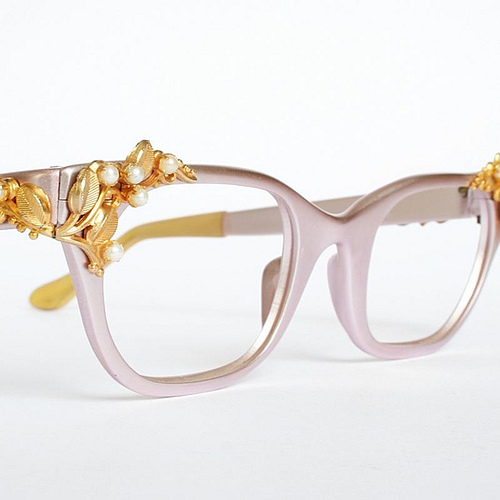
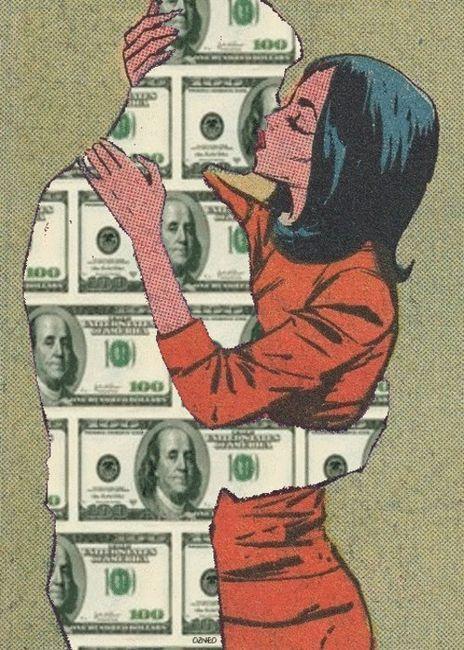
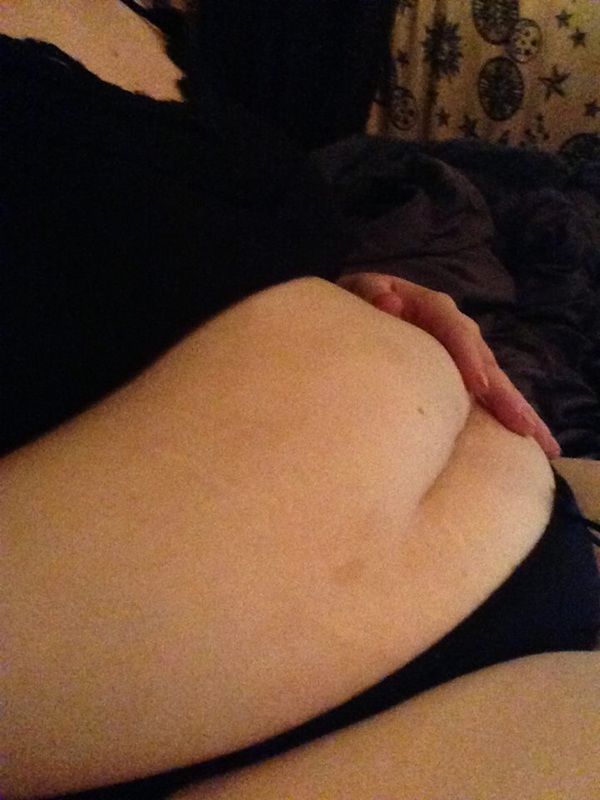
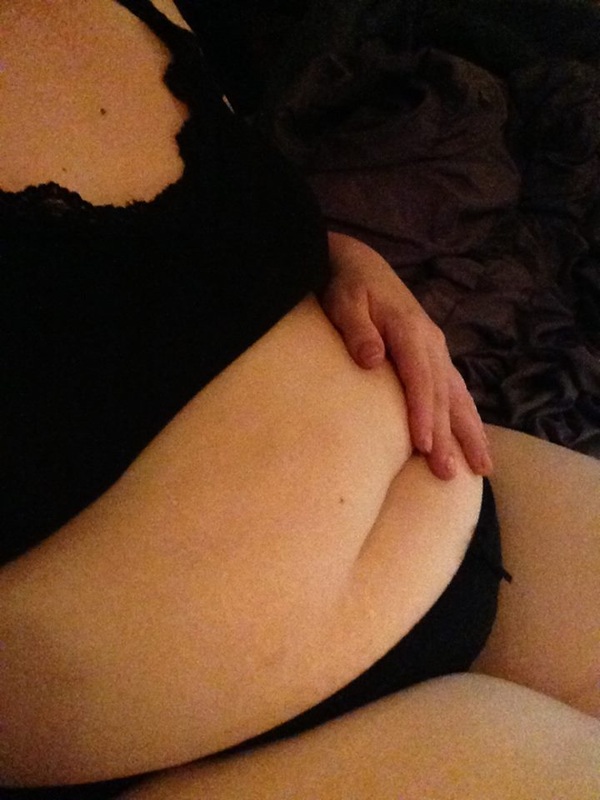

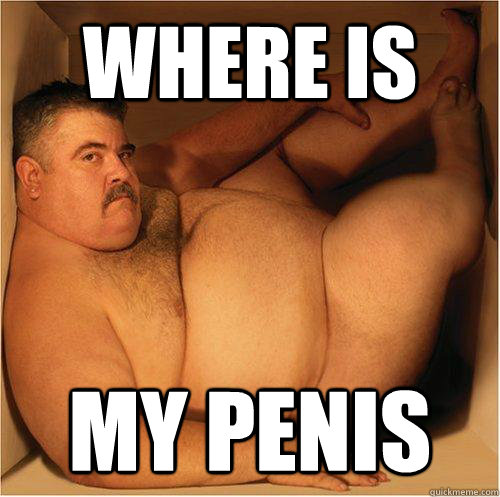
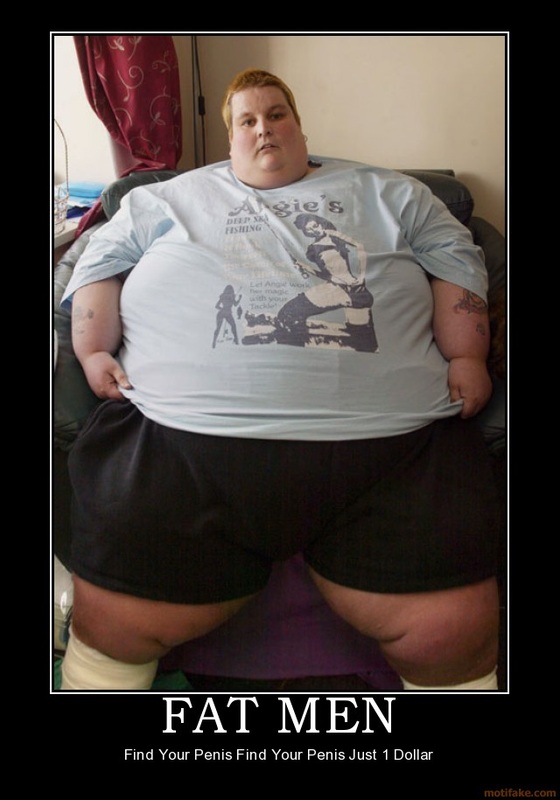
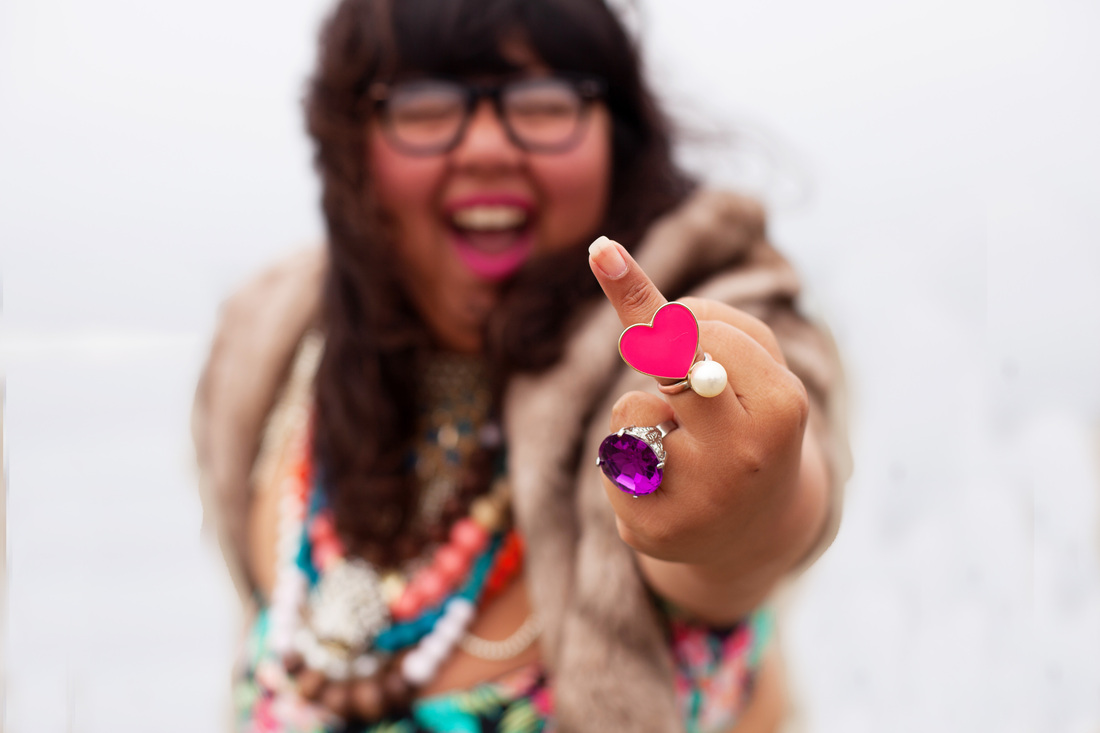


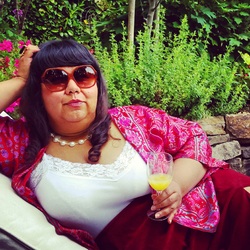
 RSS Feed
RSS Feed